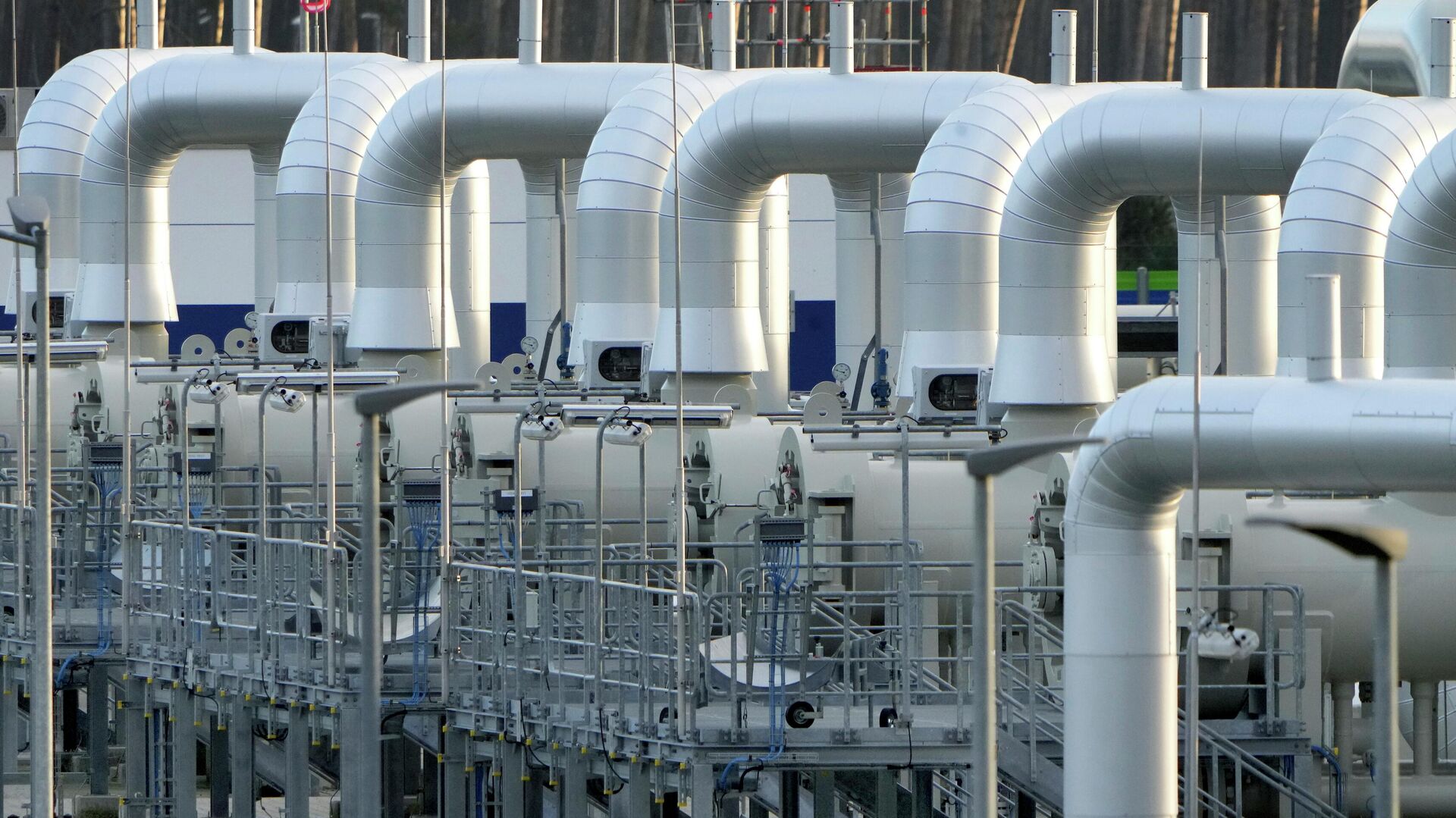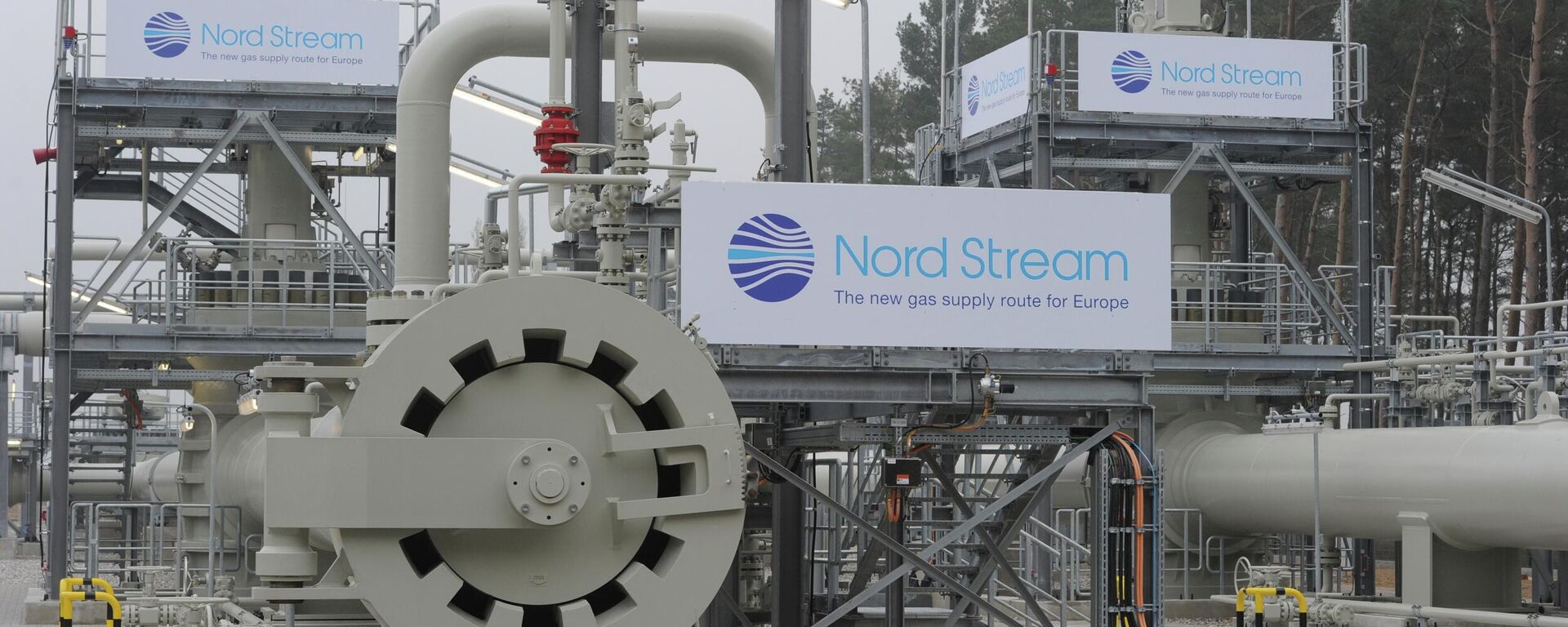https://sputnikglobe.com/20220720/imf-german-economy-may-face-significant-downside-risks-due-to-gas-supply-shortages-1097624938.html
IMF: German Economy May Face Significant Downside Risks Due to Gas Supply Shortages
IMF: German Economy May Face Significant Downside Risks Due to Gas Supply Shortages
Sputnik International
WASHINGTON (Sputnik) – The German economy may face serious downside risks in the near future due to gas supply shortages, Assistant Director in the IMF's... 20.07.2022, Sputnik International
2022-07-20T14:55+0000
2022-07-20T14:55+0000
2022-10-19T20:56+0000
germany
imf
gas
energy crisis in europe
ukraine
https://cdn1.img.sputnikglobe.com/img/07e6/07/04/1096944413_0:61:3427:1988_1920x0_80_0_0_6dd173d0cf49663978dafe79ed45a713.jpg
"We have a baseline scenario, but we also see quite significant downside risks," Celasun told reporters.The chance of a slowing economic growth is more likely than an improvement opportunity, she added.In a severe scenario, which includes gas shortages and further price spikes, the IMF recommends measures of support for the most vulnerable population, she noted.Celasun warned that negative effects of the overall situation in the world will not go away from the global economy until 2024. "That is also a big factor for Germany. We are expecting the growth to slow down for the world as a whole," she said.Celasun also noted that the partial shutoff of Nord Stream 1 has led to a downturn in confidence."Even if in our baseline gas shortages would be avoided, they would be narrowly avoided, so the situation would remain quite precarious, and we think that is going to make households and firms cautious in the coming year," she said.The fund expects that Germany’s GDP growth will slow to 1.2% in 2022 and to 0.8% in 2023, the IMF Executive Board said on Tuesday.The IMF noted that Germany has faced new headwinds, including a curtailment of gas flows from Russia and higher energy prices due to the Ukraine crisis."Surging energy costs are reducing the current account surplus and feeding into to broad-based price pressures, with inflation expected to average 7.7 percent in 2022 and 4.8 percent in 2023," the board said.
https://sputnikglobe.com/20220720/europe-will-face-tense-situation-if-nord-stream-gas-supplies-not-restored-austrian-minister-warns-1097608987.html
germany
ukraine
Sputnik International
feedback@sputniknews.com
+74956456601
MIA „Rossiya Segodnya“
2022
Sputnik International
feedback@sputniknews.com
+74956456601
MIA „Rossiya Segodnya“
News
en_EN
Sputnik International
feedback@sputniknews.com
+74956456601
MIA „Rossiya Segodnya“
Sputnik International
feedback@sputniknews.com
+74956456601
MIA „Rossiya Segodnya“
germany, imf, gas, ukraine
germany, imf, gas, ukraine
IMF: German Economy May Face Significant Downside Risks Due to Gas Supply Shortages
14:55 GMT 20.07.2022 (Updated: 20:56 GMT 19.10.2022) WASHINGTON (Sputnik) – The German economy may face serious downside risks in the near future due to gas supply shortages, Assistant Director in the IMF's European Department Oya Celasun said on Wednesday.
"We have a baseline scenario, but we also see quite significant downside risks," Celasun told reporters.
The chance of a slowing economic growth is more likely than an improvement opportunity, she added.
In a severe scenario, which includes gas shortages and further price spikes, the IMF recommends measures of support for the most vulnerable population, she noted.
Celasun warned that negative effects of the overall situation in the world will not go away from the global economy until 2024. "That is also a big factor for Germany. We are expecting the growth to slow down for the world as a whole," she said.
Celasun also noted that the partial shutoff of Nord Stream 1 has led to a downturn in confidence.
"Even if in our baseline gas shortages would be avoided, they would be narrowly avoided, so the situation would remain quite precarious, and we think that is going to make households and firms cautious in the coming year," she said.
The fund expects that Germany’s GDP growth will slow to 1.2% in 2022 and to 0.8% in 2023, the IMF Executive Board said on Tuesday.
"Growth is expected at 1.2 percent in 2022 and 0.8 percent in 2023, down from 2.9 percent in 2021," the IMF said after the conclusion of consultations on the Article IV agreement with Germany.
The IMF noted that Germany has faced new headwinds, including a curtailment of gas flows from Russia and higher energy prices due to the Ukraine crisis.
"Surging energy costs are reducing the current account surplus and feeding into to broad-based price pressures, with inflation expected to average 7.7 percent in 2022 and 4.8 percent in 2023," the board said.



